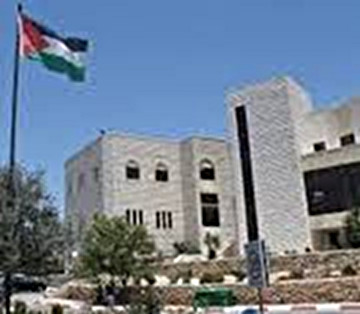Israel’s repression of Palestinian universities
The following was excerpted from a statement issued in response to a March 12 call to action by Birzeit University in Palestine.

The Organizing Collective for the U.S. Campaign for the Academic and Cultural Boycott of Israel (USACBI) writes in support of Birzeit University’s call to action “to defend the Palestinian people’s right to education, free from duress, intervention and political persecution.” We invite you to join us in heeding their call to “Work with us to break the siege that these regulations impose on Birzeit and other Palestinian universities. Accept our invitation to teach and learn in Palestine. Help us exercise our basic right to education and to preserve the institutional autonomy that we built over the decades despite all obstacles.”
We express our strong opposition to Israel’s most recent attempt to restrict Palestinian rights to education and to undermine the freedom and autonomy of Palestinian academic institutions. Scheduled to take effect in May 2022, the “Procedure for Entry and Residency of Foreigners in Judea and Samaria Region” grants the Israeli military absolute powers to select which international faculty, academic researchers and students can be admitted to teach or study at Palestinian universities.
Under this law, Israeli authorities will be in the position of determining which fields of study are permissible and what qualifications are acceptable. Further, it requires applicants to submit to Israeli investigation at diplomatic missions in countries of origin. Finally, it sets a limit on the number of foreign teachers and students (100 and 150 per year, respectively) and limits the duration of employment to five nonconsecutive years, effectively denying the hiring and promotion of faculty, and with immediate effects for current faculty and students who do not hold residency permits. This includes many Palestinians, who will lose their jobs, their access to education and their rights to live in their homeland.
The new directive also would effectively end all student exchanges. In short, it is an all-out assault on Palestinian academic freedom and collaborative intellectual exchange. In the words of Birzeit University, it “puts Palestinian Universities under siege and divests them of basic control over their academic decisions.”
This legal move is not simply a violation of the academic freedoms internationally recognized as fundamental to the lifeblood of the academic enterprise. It also represents an alarming intensification of the long-standing campaign to isolate Palestinian universities from the outside world and to thereby shape the future course of Palestinian higher education. . . .
With little faith in Israel as an occupying power to uphold its obligations under international law, we call on U.S. universities, scholars, students and workers to join the boycott of Israeli cultural and academic institutions. Even as Western powers have discovered a newfound zeal for boycotts and sanctions against Russia’s military occupation of Ukraine, BDS actions on behalf of Palestine are still vilified and criminalized in these same countries.
We denounce this hypocrisy and maintain that support for BDS is a crucial and urgent strategy to support Palestinians resisting conditions of siege, apartheid, settler colonialism and occupation. In response to Israel’s 2017 amendment to its Law of Entry, which effectively bars entry to foreign nationals on the basis of their political expression, USACBI encouraged U.S. academic institutions to suspend study abroad programs in Israel. Laws that deny access to these programs to groups and select members of the student body amount to violations of nondiscrimination policies on most U.S. campuses.
This new law is an additional restriction on access, effectively barring select faculty and students from working, lecturing, researching or studying at Palestinian institutions.
We continue to urge U.S. academic institutions to terminate their study abroad programs in Israel until the Israeli state: 1) repeals the new “Procedure for Entry and Residency of Foreigners”; 2) ends its restrictions on entry based on political speech and Palestinian heritage; and 3) adopts policies granting visas for exchanges and work permits to Palestinian universities on a fully equal basis as it does to Israeli universities.
We condemn Israel’s ongoing efforts to limit Palestinian educational access and academic freedom as a tenet of its ongoing settler-colonial project and join our Palestinian colleagues in asserting the right to education with dignity and autonomy as Indigenous peoples. We also urge students and faculty in the U.S. to teach and study in Palestine and to support Palestinians who are fighting not simply to overturn this latest repressive law but also for a free Palestine, from the river to the sea.

